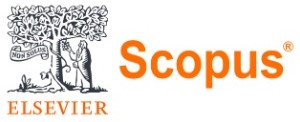Manifestations of Arabic classical language scattering among university students - Yarmouk University Case Study - Jordan
Mona Mohammad, Fatmah Awadh M. Alotaibi, Zainalabedin Mohammad Bani Hani
(1) Imam Abdulrahman Bin Faisal University, Dammam, Saudi Arabia/ Educational Training Supervisor, General Administration of Education in the Eastern Province, Email: monamohammedmosa@gmail.com
(2) Imam Abdulrahman Bin Faisal University, Dammam, Saudi Arabia/ Educational Training Supervisor, General Administration of Education in the Eastern Province, Email: fotibi@outlook.com
(3) Professor, Physical Education Department, Faculty of Sports Sciences, Mutah University, Karak, Jordan
ABSTRACT
Thinking is an educational goal that educators seek to develop in young people. It refines their minds and grows them towards optimal use of the opportunity available in any field of life, and many and diverse mental abilities in human beings.
Psychologists focused on thinking like an intellectual effort aimed at finding an answer to a question or a solution to a problem Psychology is concerned with thought processes and links them to activities similar to those usually attributed to the inventor, athlete or chess player, But psychologists have not settled on any single definition or description of thinking. As for some, it is a matter of modifying knowledge structures as to how the world is perceived, Others consider it internal problem-solving behaviour. [1] Video you may like: Thinking can also be defined as symbolic responses to stimuli that are either internal (arising from the inside) or external (arising from the environment), where thinking or thinking is a medium between internal activity and external stimuli,
Through this study on the educational implications of Arabic linguistics, the following findings were reached: that the care of Arabic is in the interest of Islamic sharia law, distinguishes Arabic language with characteristics that separate it from other languages of the world. They are the language of the Holy Quran, characterized by moderation in the number of letters of its words, the expansion of its verbal lexicon, the beauty of its words. 3. The verbal compositions of the Arabic language include artistic and tasteful characteristics that are not found in others. 4. The ancestor of the nation of scholars and successors was interested in studying Arabic language and literature, and took for their polite children. 5. The highest position of disciplinarians who have interest in Arabic language sciences. 5. Arabic language has educational effects on the verbal taste of those interested in it, reflecting on the activation of emotions, minds and behaviour through the sober fresh word. 6. The Arabic language expands the intellectual aspect of those interested in it, by expanding imagination, fertility and strengthening insight. 7. Arabic language has great educational implications in the acquisition of moral virtues and abandonment of behavioral vices, as included in prose and poetry literature by urging the generosity of morality.
Received: September 27, 2024; Revised: October 07, 2024; Accepted: October 07, 2024
Keywords:
References: Monuments Adaptive to Arabic Language and InformationPage 4 Sources References
Imam Ahmed bin Mohammed bin Hanbul (1405 AH - 1985) Al-Masandad, Beirut, Islamic Office, 5th edition.
2. Ibn Al-Ather, Majd Al-Din Al-Mubarak (D, T) End in Stranger Modern and Impact, Beirut, Dar Al-Thoughts.
3-Kairouani, Abu Isaac Ibrahim (D., T.) Zahr Al-Ethal and Al-Thamr Al-Albab, Beirut, Dar Al-Gil.
4. Al-Bukhari, Mohammed bin Ismail (1400H) Al-Jama 'a Al-Salih, Cairo: Salafi Press, first edition.
5-Hajjaji, Hassan bin Ali (1408 H 1988) Educational Thought
6. Abu al-Hassan Ali bin Abdel-Rahman (D., T.) Ain Literature, Politics and Zain al-Hassab al-Raysa, Beirut: Dar al-Biouk al-
7. Al-Jasstani Abu Dawood, Suleiman bin al-Ashrah (1388 AH - 1969), Sunn Abu Dawood, Beirut, Dar al-Hadith, first edition.
8. Ibn Al-Jawzi, Abu Al-Faraj Abd Al-Rahman (D, T).
9-Abd al-Ghani bin al-Mekaf (1407 AH 1987), Small Literature and Great Literature, Beirut, Life Library House.
10. Abdul Karim Bakar (1419 AH 1998), chapters in substantive thinking, Damascus, Dar al-Qalam, second edition.
11. Abdullah Muhammad Jarr al-Nabi (1406 AH 1986), Son of Nawziyah Values in Defence of the Ancestral Faith, First Edition.
12. Abu Osman Amr bin Bahr al-Jahz al-Basri, (1406 AH 1986) Al-Muhassin and Al-Adad, Beirut, Dar Al-Ayah Al-Science.
13. Mohammed Saad bin Hussein (1421 AH) Islamic Literature Between Reality and Perspective, Riyadh, Dar Abdulaziz Al Hussein Publishing and Distribution, First Edition.
14-Shanti, Mohammed Saleh (1417 AH 1996) Language Skills, Hail, Al Andalus Publishing and Distribution House, 4th Edition.







